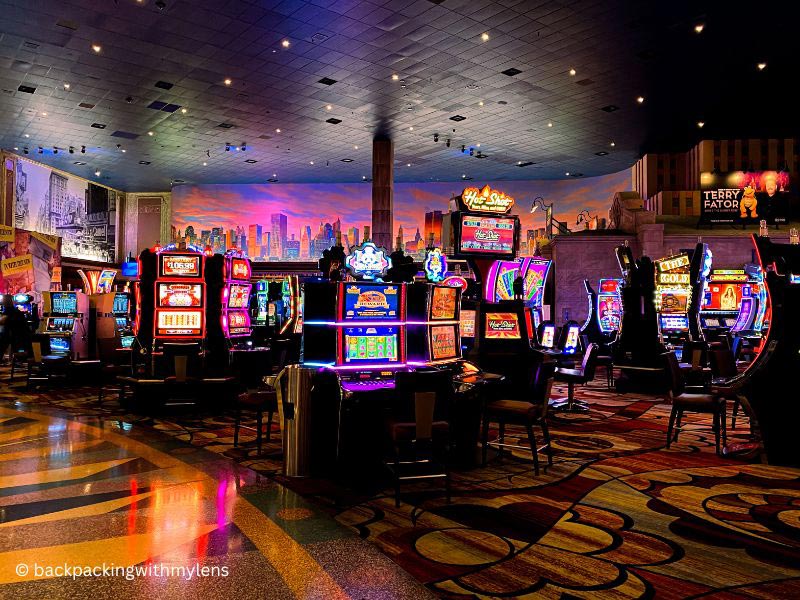Casino games have fascinated players throughout history, transforming from easy diversions to complex experiences that integrate fortune, skill, and entertainment. From the ancient roots of gambling in cultures like Mesopotamia and Rome to the dazzling corridors of current casinos, the history of these games reveals much about human nature and our interaction with luck. As cultures have merged and technology has advanced, casino games have changed, reflecting shifts in society and developments in gameplay.
The initial iterations of gambling likely featured simple games involving dice and betting on the outcomes of sports competitions. Through the years, these early games grew into better-organized games like table games, the roulette wheel, and the myriad slot games that fill the premises of casinos today. Each era brought its distinct regulations, aesthetics, and sociocultural significance. At present, casino games persist in evolving with the rise of internet-based platforms, enabling players from various parts of the world to participate in a common experience, further merging the traditional with the modern era.
Early Beginnings of Casino Games
Gambling games have roots that reach back to ancient societies, where gambling was deeply embedded in cultural traditions and social customs. The first known forms of gambling appeared in Mesopotamia around 3000 BC, involving simple dice activities made from knuckle bones. These primitive activities laid the foundation for more advanced betting activities, reflecting humans’ innate urge to seek wealth and amusement through luck.
As civilizations developed, so did their betting interests. In historic China, around two thousand three hundred BC, objects were unearthed that resembled early rudimentary forms of a lottery game game. More organized forms of gambling emerged in the ancient Roman civilization, where games of chance were a common recreation, often occurring in social events. 188bet The Romans developed multiple betting games, which entailed dice and board activities, highlighting the pervasive nature of betting across various social classes.

With the movement of years, these primitive games influenced the development of modern gambling games. In the Middle Ages, playing card games grew prevalent in European culture, paving the way for the professional gambling establishments we know today. The shift from informal betting to formal gambling in taverns and personal homes marked a significant change in how people interacted with games of chance, leading to the eventual creation of gaming houses as dedicated venues for betting.
The Rise of Contemporary Casino Gaming
The late 20th century marked a pivotal transition in the world of gaming, driven by technological progress and shifts in societal views towards wagering. The emergence of computers and the internet transformed the way gamblers interacted with their beloved casino games. Virtual casinos emerged, allowing enthusiasts to enjoy timeless casino classics like Texas Hold’em and blackjack from the comfort of their houses. This emerging online environment not only expanded availability to casino games but also attracted a newer crowd who found the ease and variety appealing.
As digital gambling gained traction, so did innovations in gaming technology. The advancement of advanced software and visual elements changed classic gambling games into captivating experiences. Gamblers could now connect with authentic live dealers through real-time broadcasts, bringing the feel of physical casinos directly into their homes. This fusion of in-person play with online platforms created a unique hybrid experience that enhanced the social aspect of gambling, allowing it possible for people to connect and compete with others around the world.
Additionally, the growth of mobile gaming substantially changed the casino landscape. With the widespread use of smartphones and touch devices, gamblers can enjoy their favorite casino games at any location, at any time. Mobile applications offer a extensive range of options optimized for touchscreens, catering to the fast-paced lifestyle of contemporary gamers. This accessibility has resulted in rising engagement in gambling, fostering the rapid expansion of the gambling sector. As a result, the outlook of casino gaming continues to develop, responding to new technologies and changing consumer preferences.
How Technology Influences Casino Games
The evolution of technology has significantly transformed casino games, improving the overall gaming experience for players around the world. As the internet emerged, online casinos emerged, allowing players to enjoy their favorite games from the safety of their own homes. This shift not only made casino games more available but also expanded the variety of games offered, as online platforms could host numerous variations of traditional games without the limitations of brick-and-mortar establishments.
Mobile technology further transformed the casino gaming landscape. As smartphones and tablets became widespread, players can to engage in casino games whenever and wherever they want. This mobility has resulted in the development of dedicated mobile applications and optimized websites that provide seamless gaming experiences. Additionally, advancements such as live dealer games have brought the genuine feel of a casino into players’ living rooms, bridging the gap between physical and online gaming.
Moreover, advancements in artificial intelligence and virtual reality are leading to the next generation of casino games. AI enhances game design and player interaction, creating customized experiences based on user behavior and preferences. Meanwhile, virtual reality offers immersive environments where players can interact in a virtual casino environment, making the gaming experience more exciting and lifelike. As technology continues to evolve, the future of casino games looks promising, filled with endless possibilities for advancements and entertainment.
